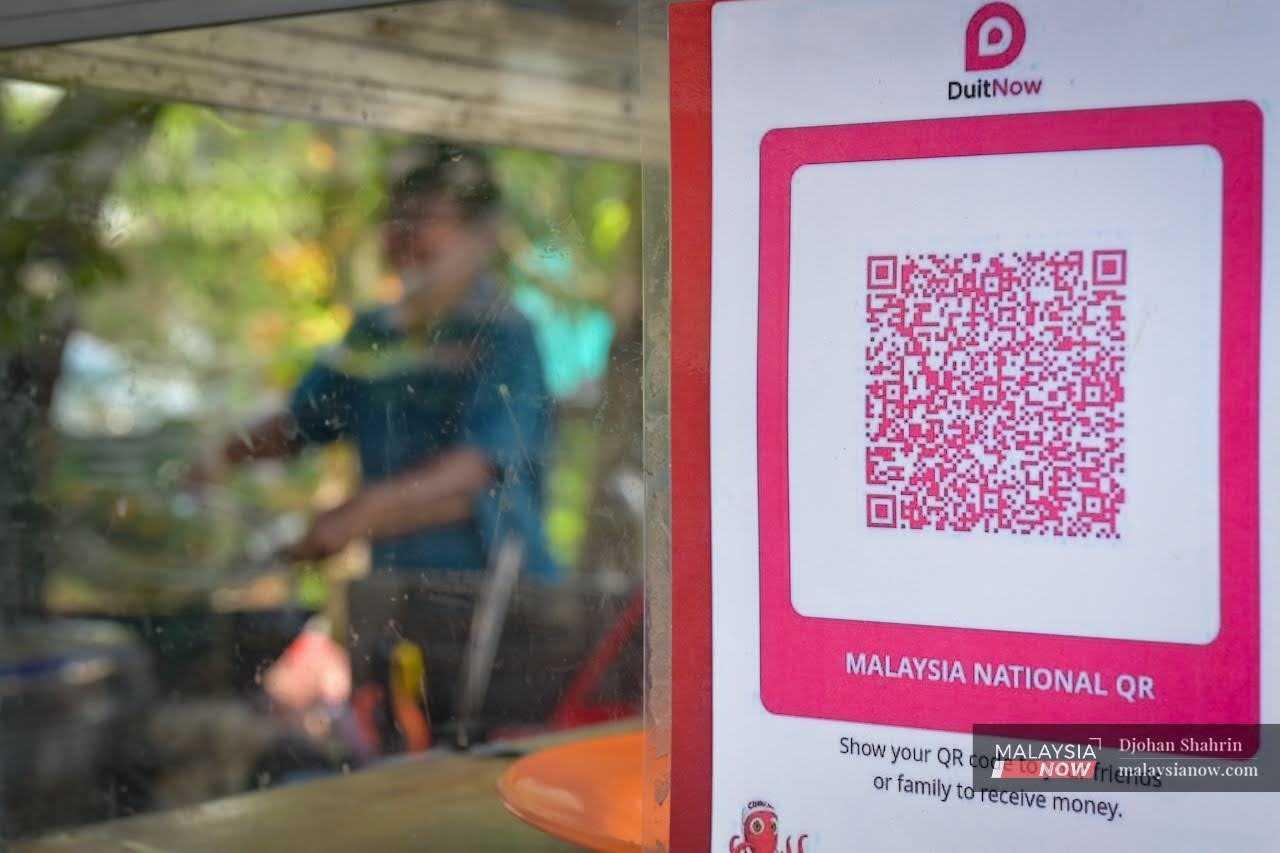Low-income group will still be burdened by DuitNow QR fees, experts say
Suggestions are floated for corporate social responsibility efforts and incentives on behalf of the government.
Just In
Consumers, including those from the low-income group, will still feel the pinch from the transaction charges to be imposed for DuitNow QR payments and transactions via credit card, experts say despite government assurances on the move.
The Consumers Association Of Subang & Shah Alam (Cassa) said the bank or industry should have found a way to absorb the cost as a form of corporate social responsibility or CSR.
"The important thing right now is for us to create a mechanism whereby the market that uses this platform or application will not charge users," Cassa president Jacob George told MalaysiaNow.
"In the current situation where the cost of living is so high, this could be a form of CSR for big companies. They don't need to be like loan sharks, imposing charges that burden consumers."
MalaysiaNow recently reported plans to start charging businesses that accept payments through the DuitNow QR facility, established in 2017.
Bank Negara Malaysia (BNM) however said on Sept 29 that it would waive the transaction fees for small businesses that accept DuitNow QR payments.
Only the RM0.50 charge for transactions over RM5,000 through the fee imposed for peer-to-peer transfers between personal QRs will be maintained.
Prime Minister Anwar Ibrahim meanwhile said that BNM governor Shaik Abdul Rasheed Abdul Ghaffour had assured him that the transaction fee would not be imposed on those from the lower-income group.
"What is important is that it will not burden low-income groups," he said.
George said the government, too, could help the industry by giving incentives for lending a hand to consumers.
"This would be better than the government giving subsidies here and there, which are then stolen," he added.
"So it would be clear that the government is helping the industry that helps the consumers.
"For me, the government should help them. Whenever I talk to the industry about this consumer issue, they say, we can do it – but what do we get from the central government?
"Give them incentives so that they can make the offer. This would be a win-win situation."
Consumers the most affected
Abu Sofian Yaacob, a senior lecturer at Universiti Keusahawanan Koperasi Malaysia, said the consumers would be the most affected as they would still be charged for personal transactions.
"Peer-to-peer charges remain, even though some banks have suspended MDR charges," he said, referring to the merchant discount rate.
"Going by the latest developments, vendors won't be affected but consumers will be."
Economist Barjoyai Bardai meanwhile said that charging consumers would be the same as implementing fees for withdrawals at automated teller machines or ATMs.
"The issue right now is when users are charged ATM withdrawal charges, RM0.50 and RM1 if it's their own bank," he said.
"This is a similar charge, just that this system is widely used. Our concern is that one day, charges will be imposed for any transaction at all."
He also questioned who had initiated the decision for fees, saying an explanation should be forthcoming on where the money will be used.
"We need to study this and look at its effects on every party involved," he said.
"Then only will we be able to determine the burden of implementing these fees and who will bear them.
"This all should have been done ahead of time. But given that many banks have agreed to waive the charges, we still have time."
Subscribe to our newsletter
To be updated with all the latest news and analyses daily.
